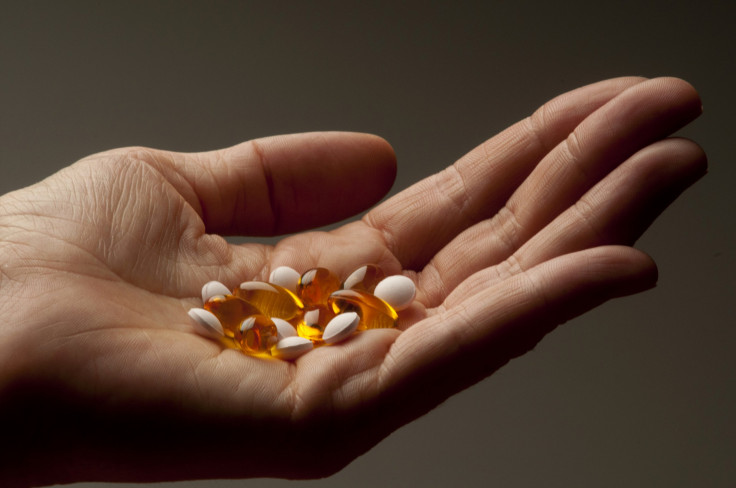Vitamin D Benefits Are Enhanced If Meal Contains Fat; Absorbing More From Supplements

Don’t just pop a couple pills in your mouth and think you’re getting the most out of your vitamin D supplements. According to a new Pfizer-funded study published in the Journal of the Academy of Nutrition and Dietetics, eating a meal with fat can actually enhance vitamin D absorption.
“Vitamin D is fat soluble and the absorption process is similar to that of dietary fats,” the study’s lead author Dr. Bess Dawson-Hughes, a senior scientist at the USDA Human Nutrition Research Center on Aging at Tufts University told Medical Daily. “Ingestion of fat stimulates the secretion of bile and promotes the formation of micelles, small structures which transport the fat and vitamin D to the gut absorptive surface, thereby promoting their absorption.”
Researchers studied 50 healthy men who were randomly assigned to one of the three meal options along with a vitamin D supplement. One group ate a fat-free meal, the second group ate a low-fat (30 percent of total calories were fat) meal, and the third ate a high-fat meal. Those who ate a meal containing fat absorbed up to 32 percent more of the vitamin D supplement than those who had a fat-free meal. Dawson-Hughes and her team thought the types of monosaturated or polyunsaturdated fats would influence vitamin D absorption, but their results said otherwise.
Monosaturated fats are found in a variety of foods and oils and have been shown to improve cholesterol levels. Polyunsaturdated fats are found mostly in plant-based foods and oils and can also improve cholesterol levels. Either way, it made no difference in how well the body absorbed the vitamin D. Just by including some fat into the meal, the body can get the most out of vitamin D supplements. The findings may even change the way people with vitamin D deficiencies diet.
Try including nuts, avocados, walnuts, flaxseeds, trout, herring, and salmon into a meal taken with vitamin D supplements. Cooking with vegetable, canola, olive, sunflower, soybean, or corn oil will also help you get the essential fats you need to give your supplements a boost in your system. Vitamin D deficiencies are very common in the U.S. Symptoms of deficiency can increase risk of death from cardiovascular disease, impair brain health in older adults, cause or worsen severe asthma in children, and has been linked to four different types of cancers.
People usually rely on vitamin D supplements to get an adequate amount into their body. There aren’t many foods with enough vitamin D to meet health requirements, according to Dawson-Hughes. A reliable alternative is to synthesize vitamin D from the sun, but most people lose out on the benefits because of limited sun exposure, sunscreen, old age, or deeply pigmented skin.
“This study clearly showed that absorption of a 50,000 IU dose of vitamin D is significantly improved by taking the supplement with a meal containing the amount of fat typically consumed in the US,” Dawson-Hughes said. “Although other doses have not been tested, it seems reasonable, pending further research, to assume that absorption would be better from other supplement doses as well. Improving absorption represents one step toward correcting the vitamin D insufficiency that is widespread in this country and globally.”
Source: Dawson-Hughes B, Harris SS, Lichtenstein AH, Dolnikowski G, Palermo NJ, and Rasmussen H. Dietary Fat Increases Vitamin D-3 Absorption. Journal of the Academy of Nutrition and Dietetics. 2014.



























